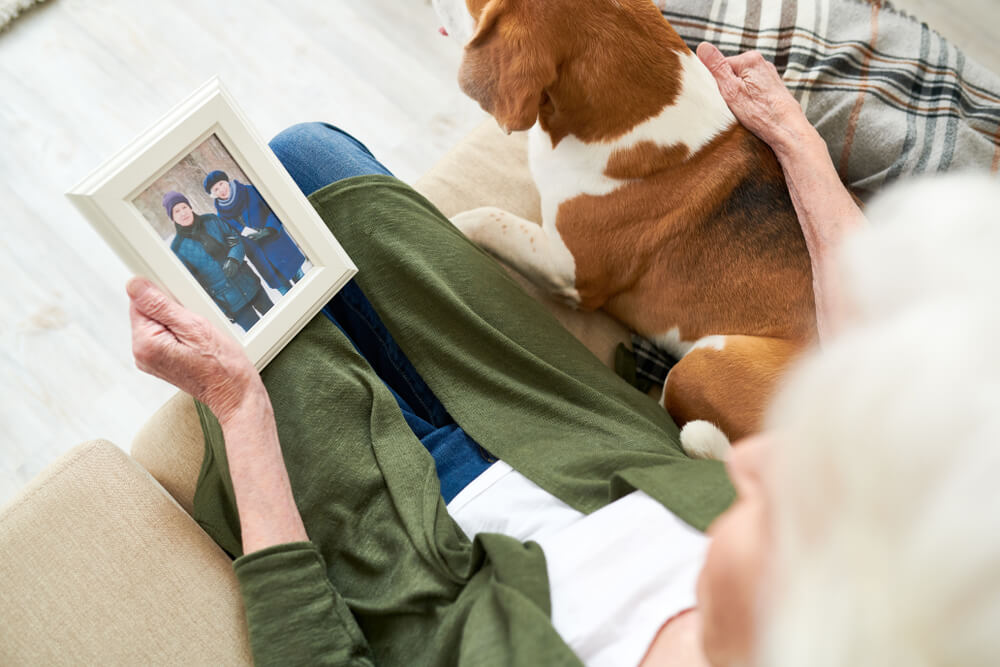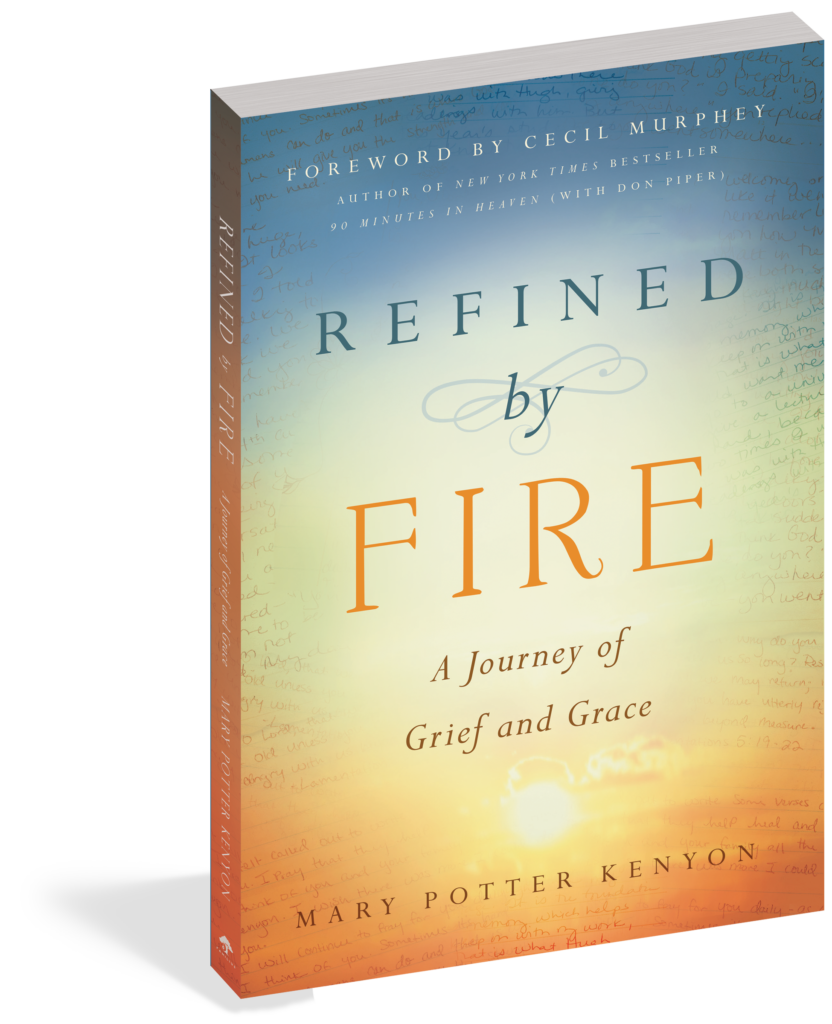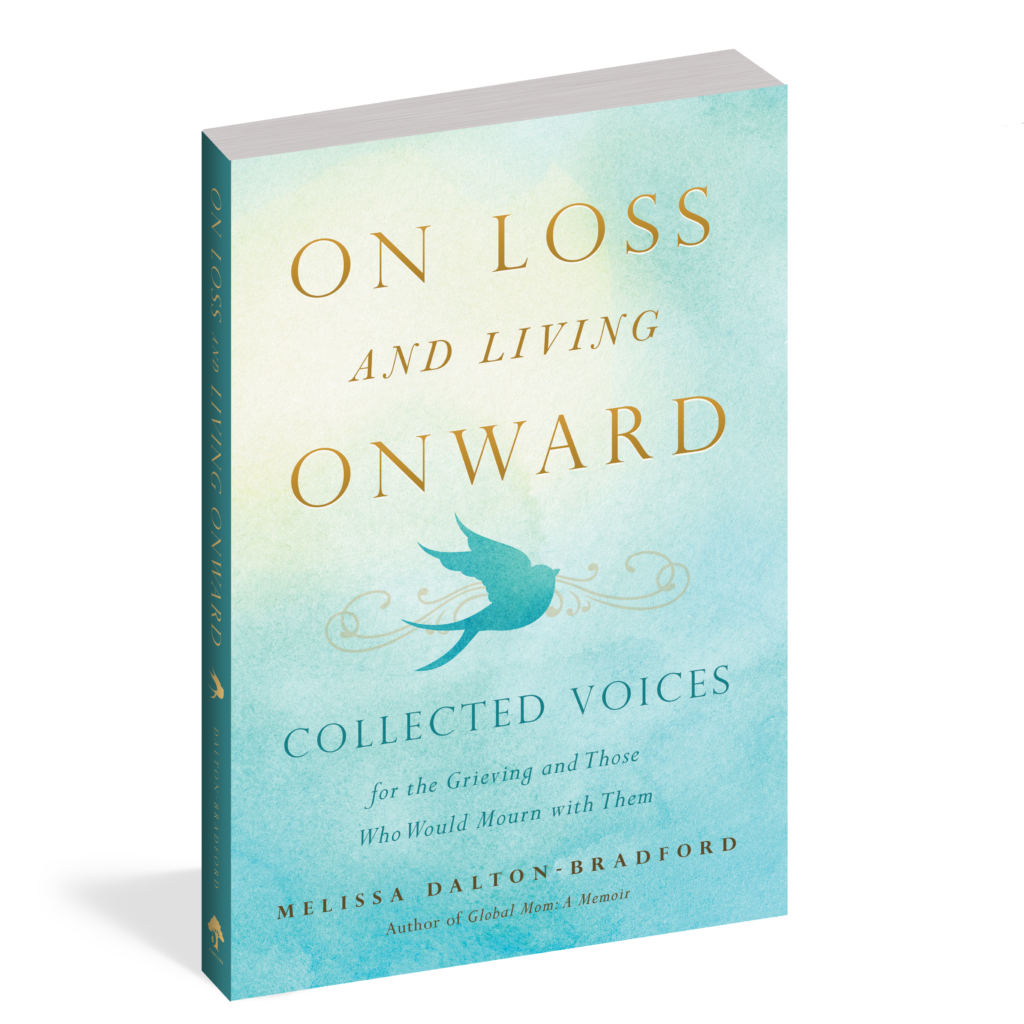
When the Holidays Hurt: Tips for Facing the Holidays While Grieving
Author Mary Potter Kenyon is a grief counselor and survivor. Read along as she shares her tips for getting through the holidays while grieving.
I thought I’d done so well that first Christmas in 2012, after my first husband died. I’d managed to decorate the house, bake cut-out cookies, fill stockings, and purchase and wrap gifts for my eight children and three grandchildren. I survived the first Christmas Eve celebration and the ritual opening of presents on Christmas morning without David. I’d been so proud of my accomplishments.
It wasn’t until my grandson Jacob looked at me expectantly and said, “I’m hungry,” that it dawned on me. What I hadn’t considered—what hadn’t even crossed my mind—was the traditional dinner of ham, mashed potatoes, rolls, and vegetables I always served following the gift giving.
I’d totally forgotten the Christmas meal.
And that is why I ended up at a gas station to pick up frozen pizzas on Christmas Day. My children forgave the transgression. They understood the difficulty of celebrating Christmas after the death of a husband who’d shared my life and holidays for more than thirty years.
Living with loss
Sadly, the following year we were mourning the loss of that grandson who’d been hungry for ham, learning just how painful the holiday season can be with the stark reality of missing loved ones.
It’s inevitable that we’ll experience loss at some point in our lives. Facing those milestone “firsts” of the first birthday, anniversary, or even visit to a store or event that brings loss to the forefront. But the holiday season, with its emphasis on family togetherness and celebration, can be particularly arduous. Navigating crowded stores with the piped-in cheerful music, gift-giving and other rituals that highlight the absence of a loved one, and rooms filled with celebration can be unbearable to those in mourning. How can we prepare ourselves to endure that “most wonderful time of the year” without our loved one?
Tips for Facing the Holidays While Grieving
These suggestions for those who are grieving stem both from personal experience as well as lessons learned from my work as a certified grief educator:
Acknowledge that the “joyful” holidays might be anything but when you are grieving.
The holiday season can be fraught with memories of what we once had that is now lost to us. Realize this is a normal reaction to missing a family member or loved one. Acknowledging this reality, vow to be gentle with yourself. Don’t expect everything to be the same. In fact, think of this as an opportunity to do things differently. Abandon rituals that may have become a burden. Introduce new ones. Give yourself permission not to do anything you don’t want to, especially that first year. Be open and honest with friends and family regarding their expectations. “I just can’t this year” should suffice as an explanation.
Do whatever it takes to get through the holidays.
My children and I did something unprecedented in the Kenyon family that first Thanksgiving without their dad. We went out to eat at a buffet-style restaurant. We’d never done so before, and likely never will again, but it seemed the right thing to do to get through that first year. When I couldn’t bear to pull out our artificial Christmas tree and the boxes of ornaments that had decorated it for years, I ordered a pre-lit tree online and had it delivered to my door. Then I purchased new blue ornaments for decoration.
Our first Christmas without Jacob was going to be excruciating, but my daughter Elizabeth had three other children to consider, so not celebrating wasn’t an option. When one of her children came up with the idea of exchanging “gag” gifts, with a contest for the most ridiculous gift, it was the first time I’d seen a light in her eyes since her son’s death. Not all her siblings joined in the game, but she and I playfully vied for the prize of “most hideous” gift for several weeks. I may have been declared the winner with the Appalachian nut head dolls I discovered at a thrift store, but the ugly, misshapen sheep candle she found for me was displayed inside a glass cabinet for several years, serving as a reminder of how something so simple and silly pulled us out of misery for a short while.
Get plenty of rest.
Grieving is exhausting. Your body needs healthy food and rest as your wounded heart heals. Just as it does after you’ve had surgery or been ill. Never one to nap before, I took daily naps during that first winter after my husband’s death, finding the hustling and bustling of crowds and the constant barrage of lights and music everywhere overwhelming.
Surround yourself with people who care about you.
Socializing might be the last thing you feel like doing but the very thing you need. It is too easy to become isolated as a griever. If large group celebrations are too much for you, find someone who knows how to companion you in your grief, to sit near you at events. I’ll never forget my sister Denise sitting with me on Christmas Eve, even though she doesn’t celebrate the holiday. Her quiet presence made the evening bearable. It’s perfectly fine to avoid large groups altogether for a while too; opting for a lunch out, a movie, or a cup of coffee and conversation might be just what you need.
Do something for others.
You can become more like the best of those you have loved and lost. My grandson was a generous little boy, always sharing the prizes and treats he received from the staff during his hospital stays. During his brief period of remission, he collected toys for other children. In honor of him, my daughter and I began doing random acts of kindness. Even on my worst days, doing a random act of kindness in Jacob’s name can make me feel better.
My mother was the kind of woman who’d make friends with strangers, always reaching out to others. Her address book was proof of this, as she jotted down addresses of people she met on her trips. After her November 2010 death, I used her Christmas card list and leftover Christmas cards to send messages to all those who might not otherwise know of her passing. The handwritten notes I included became a form of therapy for me. I did something similar after David’s death. He died on a Tuesday, and for many weeks, Tuesdays were just a reminder of yet another week without him.
At some point in my grieving, I decided to make Tuesday a day to reach out to others. I believe that conscious decision made a huge difference in my healing. Every Tuesday I got up and reached out to someone I thought might need some cheering up or who I hadn’t seen or heard from for a while. Instead of dreading the weekday reminder, I started to look forward to Tuesdays. It wasn’t about getting something back, but rather opening my heart to others. In the process of reaching out to fellow human beings, my world became so much bigger.
The truth is,
you can become broken through loss . . . Or broken wide open. And when better than the holiday season to open our hearts, broken or otherwise?
Find Support in Your Grieving with These Books

The Littlest Weaver

Refined by Fire

On Loss and Living Onward
Mary Potter Kenyon graduated from the University of Northern Iowa. She is a certified grief educator, trained through world-renowned grief expert David Kessler. She is the author of seven books, including the award-winning Refined By Fire: A Journey of Grief and Grace and Called to Be Creative: A Guide to Reigniting Your Creativity. Mary founded the annual Hope & Healing grief retreat in Dubuque, Iowa, where she lives with her husband, Nick. She speaks and does programs on the topics of grief and creativity.
